Work is changing and anticipated changes such as changing demographics, globalisation, diversity, flexibility and skills are already part of today's working reality. Following on from our first Future of Work Hub event "HR and Policy Challenges", James Davies, Joint Head of employment at Lewis Silkin LLP offers a legal perspective on some of the issues discussed on the day.
Following on from the recent Future of Work Hub event, I've been thinking about some of the themes and ideas that emerged on the day and, in particular, what that means from a legal perspective.
Work is changing
In many ways the anticipated changes to the world of work that were discussed during the event – such as changing demographics, globalisation, diversity, flexibility, skills - are already part of today’s working reality. However, it is clear that we are living in a period of unprecedented and dramatic change. As our key note speaker, futurist Dean van Leeuwen, put it - the next decade is likely to bring more disruptive changes, having a greater impact on the workforce than the changes seen over the past five combined. In this context, we all need to recognise the potential for these changes to challenge current business models and the way we work. The ability to be “adaptive”, “innovative” and “unlearn” the usual responses to particular challenges were key themes running through the event.
The panel discussion covered a wide range of themes, touching on the disruptive force of technology, the impact of changing social values and demographics, increasing globalisation, current skills challenges and gaps in educational content and the evolution of people management. Delegates shared their perspectives on many of these issues in the world café discussions (some of which were colourfully displayed on the day - see below!).
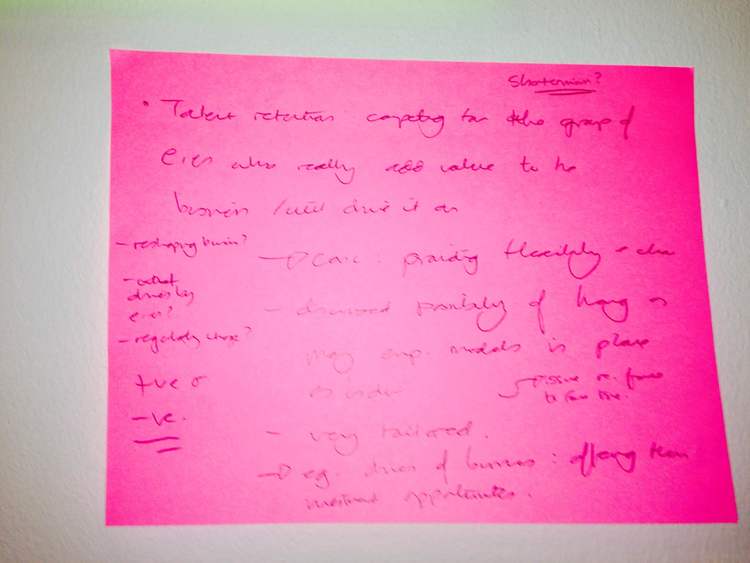
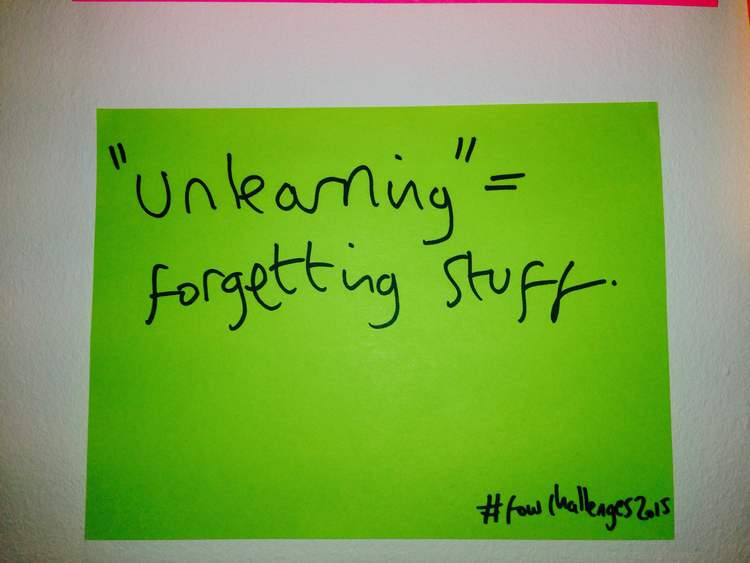
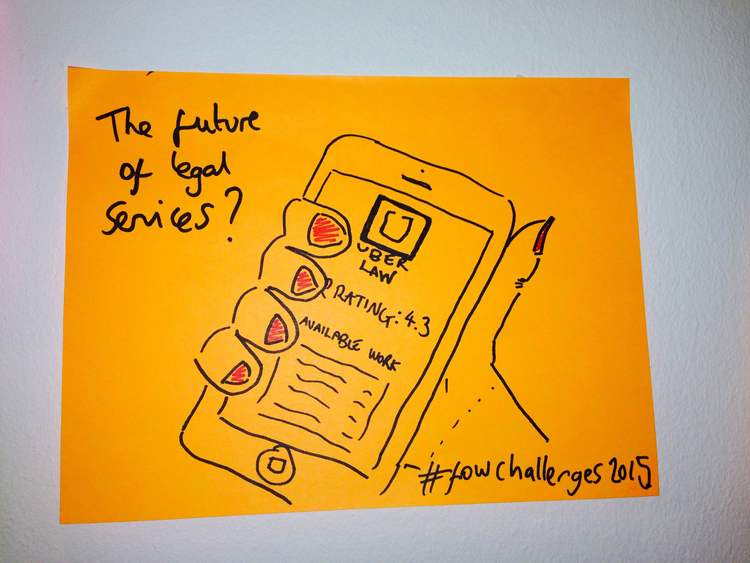
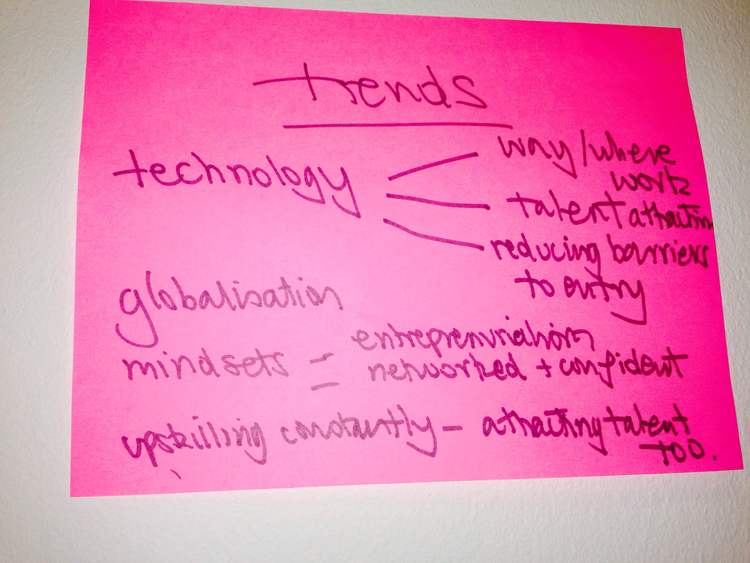

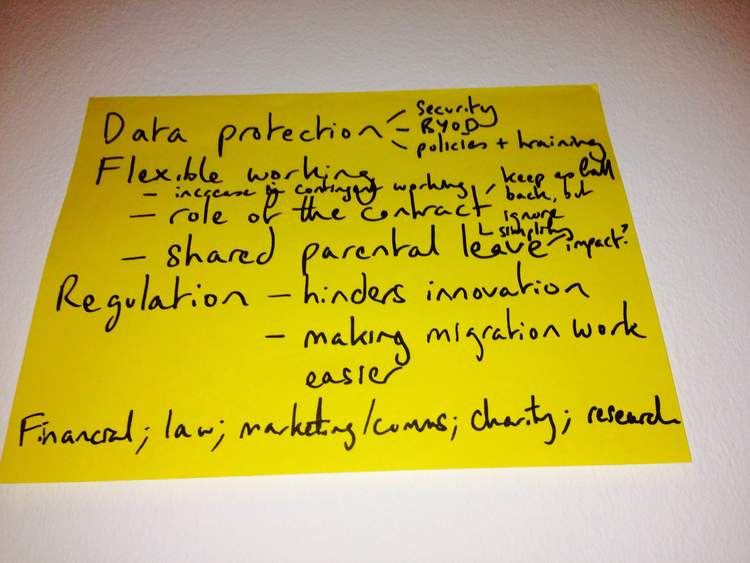


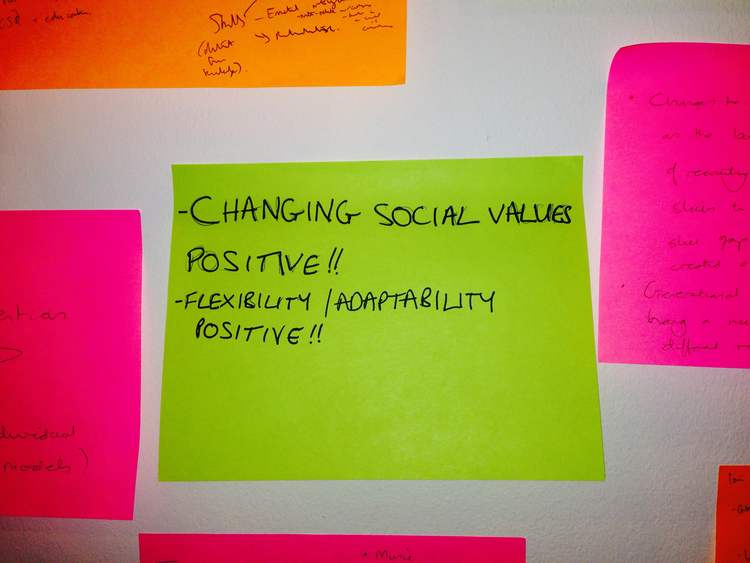
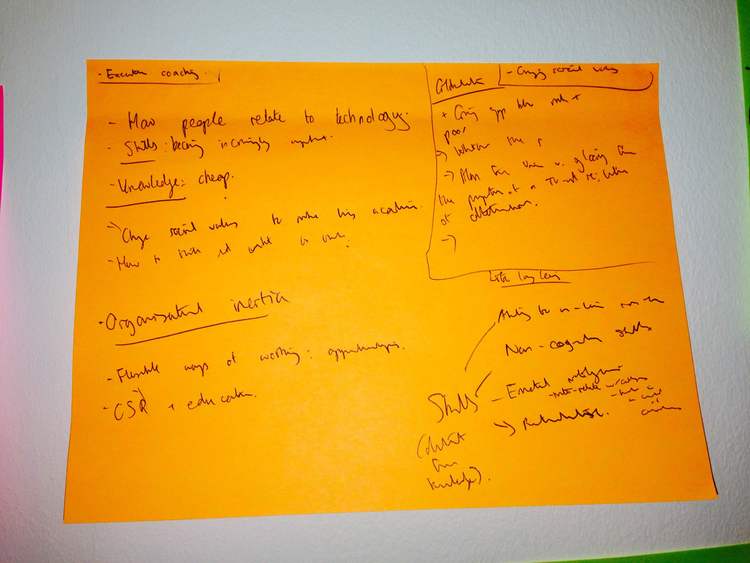
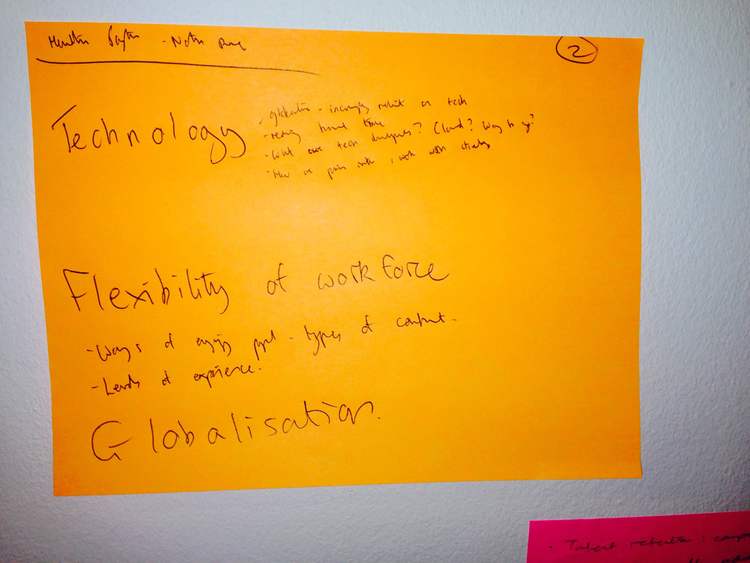

Engaging with these issues on the panel from a legal perspective, here are some of my thoughts on the potential policy and regulatory responses.
Employment and regulation
The current framework in the UK governing the employment relationship is based on (primarily) individual statutory and contractual rights which aim to protect job security. But this regime evolved relatively recently - the concept of unfair dismissal was only introduced at the beginning of the 1970s, off the back of a long period when collective bargaining was the primary framework for regulating the employment relationship.
However, flexibility and global mobility are on the ascendency and tensions between the changing nature of work and existing regulation are becoming increasingly clear. We are moving away from the traditional 9 to 5 contract. Many employers actively encourage flexibility (supported by a number of government initiatives). Changing social values are driving flexibility from the individual perspective too. Country specific (and EU) laws are increasingly ill-equipped to deal with the need for consistency and flexibility when working across multiple jurisdictions.
Flexible working
The rise in different types of “atypical” working arrangements and cross-border working are likely to herald a breakdown of “traditional” employment relationships. Indeed, the breakdown is probably already underway. There is no doubt that regulation will need to facilitate flexible working arrangements to support organisational adaptability and respond to shifting workforce attitudes.
But beyond this, there is a bigger question about whether the legal framework should move from a focus on job security towards protecting fundamental human rights. Certainly some of our existing legislation addresses wider social imperatives (for example, in relation to discrimination, whistleblowing, data protection). But should it go further in light of the potential impact of predicted changes on both individuals and the labour market, to protect a wide-ranging platform of fundamental rights based on society’s needs? For example, protecting rights to privacy and family life? In today’s world are these basic rights not more relevant than a regime predicated on protecting job security? And where should the balance lie between businesses and government in ensuring comprehensive basic rights are provided across all working models and possibly across multiple jurisdictions? These are questions we’ll be investigating and engaging with policy-makers over coming months.
What does this mean from your perspective? For your organisation? For people management?
By James Davies, Joint Head of Employment at Lewis Silkin LLP
What does this mean from your perspective? How will it affect your organisation? How will it affect people management? Share your thoughts using the comments section below.
For more original opinion pieces like this, subscribe to our monthly spam-free future of work newsletter.
